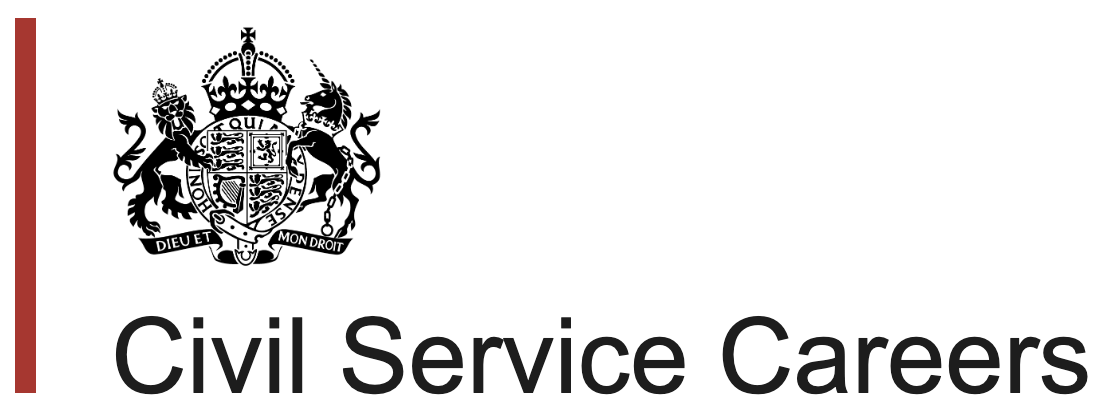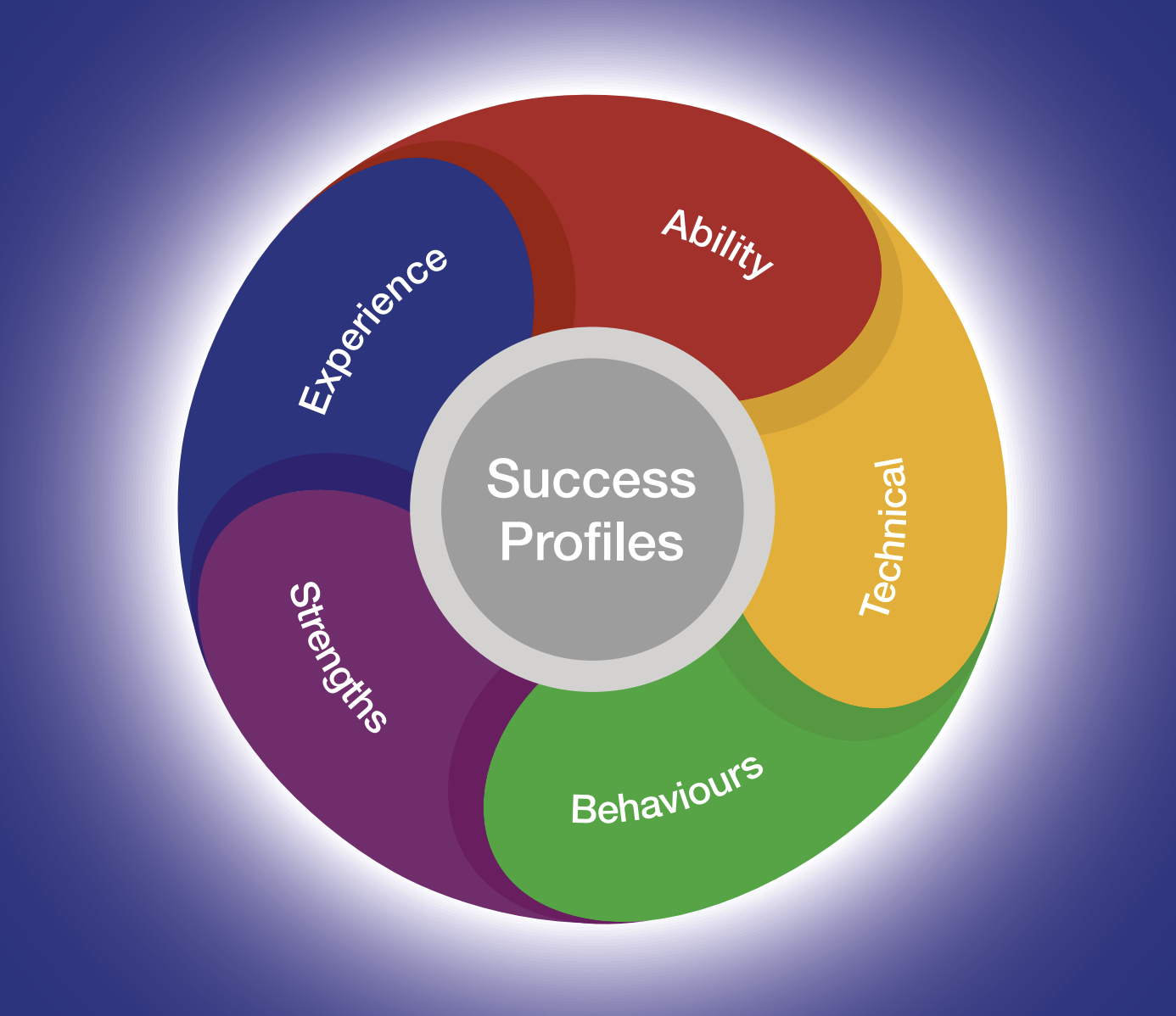Cookies on Civil Service Careers Site
We use some essential cookies to make this service work.
We’d like to set additional cookies so we can remember your settings, understand how people use the service and make improvements.
You’ve accepted additional cookies. You can change your cookie settings at any time.
You’ve rejected additional cookies. You can change your cookie settings at any time.


The Civil Service
- What is the Civil Service
- Working for the Civil Service
- Our Locations
- Civil Service Networks
What do Civil Servants say?
- Social Mobility in the National Security Community Catherine Holmes and Naomi Davey, co-NSC Social Mobility Champions, write about the National Security Community and their work to ensure the community represents the country.
- Julie's experience as an apprentice Hear from Julie Kanaan, a former Level 5 Coaching apprentice in the Driver and Vehicle Standards Agency (DVSA)
- Alison and Dave's life in HMRC Hear from Alison and Dave about what it's like to work within Customer Strategy & Tax Design in HMRC
Early Careers
- Apprenticeships
- Care Leavers Internship Scheme
- Civil Service Fast Stream
Experienced Hires
- Executive Leadership
- Contracting Opportunities
- Evidence House
- Civil Service Secondments
Supported Schemes
- Prison Leaver Recruitment
- Going Forward into Employment
Applying for a Job
- About the application process
Civil Service Success Profiles
How to write your cv, how to write your personal statement.
- Civil Service Behaviours
- Assessments and Interviews
- Guide to Job Sharing
Supporting your Application
- Great Place to Work for Veterans
- Disability Confident Scheme
- Reasonable Adjustments

Your personal statement
The purpose of a personal statement is to showcase your relevant skills and experience against the job requirements. The statement is your opportunity to give examples of how you fit the requirements of the job. When writing a personal statement it is important that you:

- read the job specification so you are clear about the job requirements
- outline the skills and experience that you have that are relevant to the job and use examples to help demonstrate this.
- try to include specific facts and figures that demonstrate the tangible results of your work
- keep to the word limit – if your statement is too brief it will not provide the required depth of detail and evidence to be assessed fully
- proofread your statement before submitting it to make sure it is clear, easy to read and relevant
How we recruit

For some jobs, you will be asked to provide a CV (curriculum vitae) as part of your application. Here you can find information on how to write the best CV.

Demonstrating behaviours
Behaviours are the things that people do that result in effective performance. Read more about the behaviours we use to assess you.

Assessments and interviews
Read about the different kinds of assessments you might be asked to do, after you’ve submitted an application form.

The Civil Service recruits using Success Profiles. This means that for every role, we consider what you’ll need to demonstrate to be successful.
Communicating & Influencing – How to Write a 250 Word Statement For a Civil Service Application

- Updated January 15, 2024
- Published September 29, 2023
In the Civil Service, communicating & influencing is essential. But how do you highlight your experiences and proficiency in these areas into a concise 250-word statement during your civil service application?
Whether you’re a seasoned professional or a fresh-faced aspirant, crafting a compelling narrative within such a tight word limit can feel like an art form in itself.
This article will help you show off your ‘Communicating & Influencing’ skills in your Civil Service application. Let’s make sure your application isn’t just good but the best among the rest. Ready? Let’s get into it!
What Does Communicating & Influencing Mean in Civil Service?
In the Civil Service, “Communicating & Influencing” isn’t just about passing on information or convincing someone to see things your way. It’s about building understanding, creating shared visions, and moving projects or ideas forward collaboratively.
Communication is the tool through which policies are explained, concerns are addressed, and the public is kept informed. Influence, on the other hand, is the soft power that facilitates cooperation across departments, ensures stakeholders are on board, and guides teams or projects to successful outcomes.
The significance of these skills is deeply rooted in the public-oriented nature of civil service roles. Effective communication ensures transparency, building public trust. Being a good influencer means you can negotiate, mediate, and lead effectively, ensuring tasks are done efficiently and the best outcomes are achieved for the public.
Given the diverse stakeholders involved in civil service work, from the general public to government officials and inter-departmental teams, the ability to communicate and influence becomes paramount.
Showcasing Communicating & Influencing in Your 250-Word Personal Statement
When crafting a 250-word personal statement, it’s essential to succinctly showcase these skills. Start by selecting a clear example using the STAR method: describe a Situation where effective Communication was needed; outline the Task or objective you were aiming for; detail the Actions you took, emphasizing both communication and influencing strategies; and conclude with the Result, highlighting the positive outcomes achieved through your efforts.
By presenting a focused narrative that ties together your experience with the competencies desired, your statement will not only resonate but also stand out.
- Changing & Improving – How to Write a 250-Word Statement For a Civil Service Application
- Leadership – How to Write a 250-word Statement For a Civil Service Application
- Delivering at Pace – How to Write a 250-Word Statement For a Civil Service Application
- Making Effective Decisions – How to Write a 250-Word Statement For a Civil Service Application
How to Structure a 250-word Personal Statement?
Are you applying for a job in the Civil Service? The 250-word statement on the application is your chance to shine. They want to see if you are able to communicate and influence effectively.
Are you wondering how to fit this in a small space? Use the STAR method. It’s a simple way to talk about what you’ve done and how. Let’s dive into how you can structure your 250-word personal statement.
- Start with a concise opening about the importance of communicating and influencing in the Civil Service. This sets the tone and context for your statement.
- Situation : Begin by setting the scene. Describe a specific situation where you were faced with a decision-making challenge and the need to communicate, and influence played a vital role.
- Task : Clearly state what your responsibility was in that situation. What decision did you have to make? Who did you need to communicate with or influence?
- Action : Dive into your role. How did you communicate? Did you employ presentations, meetings, or written communication? How did you influence others—through data, persuasion, or collaboration? This section is critical, so be specific about your methods and approach.
- Result : Conclude this section by sharing the outcome of your decision and, importantly, how your communication and influencing skills positively impacted the result.
- Wrap up by reinforcing the value of effective communication and influencing. Tie this back to the role you’re applying for, emphasizing your readiness and enthusiasm.
- Keep It Relevant : Ensure the situation you pick is relevant to the Civil Service role you’re applying for.
- Stay Concise : With a 250-word limit, every word counts. Be clear, concise, and avoid jargon.
- Proofread : Ensure there are no grammatical or typographical errors. A polished statement reflects attention to detail.
By following this structure and focusing on showcasing your communicating & influencing skills within the decision-making context, your personal statement will be both impactful and tailored to the demands of the Civil Service role.

How to Write a Personal Statement Within the 250-Word Limit
Writing a personal statement for the Civil Service in just 250 words might seem tough, but it’s all about getting to the point. Think of it as telling a quick story about a time you did something impressive at work. You don’t need fancy words; just be clear about what happened and how you made a difference.
Writing a 250-word personal statement for a Civil Service application might seem daunting, but think of it as your elevator pitch – concise yet impactful. In such a tight space, every word must pull its weight, effectively showcasing your strengths and experiences. To illustrate your ‘communicating and influencing’ skills, the STAR method is a tried-and-tested tool. It provides a structured way to tell a compelling story, ensuring you cover the most essential aspects of your experience.
To write a compelling 250-word statement, here are a couple of tips to help you get started.
- Situation : Briefly describe the setting.
- Task : Outline the challenge or responsibility you had.
- Action : Detail how you communicated or influenced to address the task.
- Result : Share the positive outcomes of your efforts.
- Be Concise Direct : With limited words, skip the jargon and get to the point. Say what you mean as straightforwardly as possible.
- Prioritize : Focus on one or two key experiences rather than trying to cover everything. Quality over quantity is the mantra here.
- Proofread : A small error can stand out in a short statement. Make sure your grammar, punctuation, and spelling are spotless.
- Relate to the Role : Ensure your statement directly relates to the Civil Service role you’re applying for. Tailor your experiences to show you’re the right fit.
Your personal statement is your first impression. By following these tips and integrating the STAR method effectively, you can ensure it’s a memorable one.
Example Personal Statement Civil Service
Below, we discuss five different examples of civil service personal statements.
Example 1: Civil Service Communicating & Influencing
Being effective in the Civil Service hinges on two crucial skills: Communicating and Influencing. At its core, it’s about sharing ideas clearly and getting people to see things from a shared perspective. My career has been a testament to the power of words and the art of persuasion.
Situation : In my previous role at the Education Department, we faced a backlash against a proposed modernized curriculum. Parents were concerned, believing we were straying from foundational learning.
Task : My responsibility was not just to explain the changes but to win the trust of these concerned parents, ensuring they understood the broader vision.
Action : I organized a series of open-house sessions in schools. Instead of a lecture-style format, I set up interactive booths showcasing the new learning modules, with educators available for real-time discussions. Recognizing the power of peers, I facilitated sessions where parents who supported the changes shared their perspectives, addressing concerns in a relatable manner.
Result : The face-to-face engagement made a difference. Over the span of a few weeks, we witnessed a significant shift in sentiment. By the end of the month, over 75% of parents expressed confidence in the new curriculum, a stark rise from the initial 20%.
In the dynamic landscape of the Civil Service, Communicating and Influencing is the compass that ensures we navigate challenges cohesively, turning apprehensions into shared achievements. I am eager to continue harnessing this skill, marrying clarity with conviction in every endeavor.
Example 2: Civil Service Communicating & Influencing
In the Civil Service, the power of Communicating and Influencing cannot be understated. It’s where strategy meets the public, where policies touch lives. My journey has consistently underscored the criticality of lucid communication, married with the ability to inspire, motivate, and align stakeholders toward common objectives.
Situation : Within my role at the Urban Planning Department, we grappled with public dissent regarding a new urban green space initiative, largely stemming from misconceptions and inadequate outreach.
Task : It fell upon my shoulders to not only clarify the initiative’s intent but to rally public support, turning detractors into advocates.
Action : I spearheaded a multi-pronged communication campaign, launching informative webinars to dispel myths. Recognizing the value of personal stories, I collaborated with local communities to document and share testimonials of individuals whose lives were positively impacted by similar projects elsewhere. I also organized participatory workshops, offering a platform for direct dialogue and ensuring public voices shaped the initiative’s final blueprint.
Result : This multifaceted approach bore fruit. Within four months, public support swelled from a mere 30% to a robust 75%. More than mere numbers, the initiative became a testament to the power of collaborative governance, with the green space reflecting shared visions and aspirations.
Drawing from such experiences, I firmly believe that in the realm of the Civil Service, Communicating & Influencing is the bridge between intent and impact. I am deeply committed to leveraging these skills, ensuring that public service remains a dialogue, a partnership, and a shared journey.
Example 3: Civil Service Communicating & Influencing
Effective Communicating and Influencing are the backbone of thriving in the Civil Service, binding together policy, execution, and public welfare. My career trajectory has been underpinned by a knack for clear communication and the ability to shape perspectives, forging bridges and crafting consensus even in challenging terrains.
Situation : During my role in the Local Council’s Environmental Committee, we were confronted with widespread community resistance against a proposed waste recycling facility.
Task : My challenge was not just to disseminate information but to shift deeply entrenched community perceptions, ensuring they understood the long-term benefits of the facility.
Action : I orchestrated a series of town hall meetings, incorporating multimedia presentations for clarity. Understanding the concerns, I collaborated with environmental experts to weave compelling narratives supplemented with data. Beyond just speaking, I ensured these sessions were interactive, encouraging community questions and addressing them with evidence-based responses. Simultaneously, I initiated a door-to-door campaign, using tailored leaflets and engaging in one-on-one dialogues.
Result : Over a span of three months, the resistance metamorphosed into endorsement. A post-campaign survey reflected a 70% approval rate, up from an initial 20%. The recycling facility was greenlit, and more vitally, the community became proactive participants in sustainable initiatives.
In the heartbeats between policy and public, Communicating and Influencing acts as the rhythm. With a passion for fostering understanding and shaping change, I am eager to channel these competencies, ensuring the Civil Service’s initiatives resonate deeply and effectively.
Example 4: Civil Service Communicating & Influencing
The core of Civil Service revolves around Communicating & Influencing. Navigating this space requires more than just conveying information; it demands the finesse to sculpt understanding, drive change, and achieve shared goals. My experiences have continually reinforced the transformative power of adept communication coupled with strategic influencing.
Situation : As a lead coordinator during the launch of a citywide digital literacy initiative, I was faced with skepticism from older residents, many of whom felt overwhelmed by the rapid tech influx.
Task : My objective extended beyond the logistical rollout; I needed to ensure that this significant demographic not only understood but also embraced the initiative, turning apprehension into empowerment.
Action : Recognizing the power of relatability, I organized a series of ‘Tech Buddies’ workshops. Pairing senior residents with tech-savvy youth volunteers, these sessions focused on personalized, hands-on training. Additionally, I liaised with community influencers, securing their endorsements, and had them share their personal tech-learning journeys through local media.
Result : The tandem of personalized sessions and influential testimonies worked wonders. Within six months, the adoption rate among senior residents surged by 60%. The initiative, initially met with hesitation, transformed into a community bonding experience.
In the the Civil Service, Communicating & Influencing are the threads that weave together diverse stakeholders, objectives, and challenges. Drawing from my experiences, I am resolute in my commitment to harness these skills, ensuring that communication transcends barriers and influence catalyzes positive action.
FAQ: Civil Service Communicating & Influencing
- It encompasses the ability to express ideas effectively, listen actively, and persuade or influence others positively, ensuring collaborative and productive interactions.
- Given the collaborative nature of public service roles and the need to liaise with diverse stakeholders, effective communication and the ability to influence decisions is crucial to achieving desired outcomes.
- Provide specific examples in your personal statement or during interviews where you’ve effectively conveyed ideas, brokered agreements, or navigated complex interpersonal scenarios.
- While the Civil Service values clarity, accuracy, and inclusiveness in communication, the tools or styles may vary depending on the department or role. Familiarity with formal communication, reports, and presentations can be beneficial.
- Whether it’s in policy formation, stakeholder interactions, or internal team coordination, the ability to shape opinions, drive consensus, or motivate change is a frequent requirement.
- While it’s a universally valued skill, roles involving stakeholder management, public relations, policy advocacy, or leadership may particularly emphasize this competency.
- Yes, the Civil Service often provides training modules for effective communication, negotiation, and other related soft skills to help employees excel in their roles.
- Focus on understanding your audience, being concise, providing relevant data or context, and encouraging feedback or dialogue to ensure clarity and impact.
- In senior roles, this competency becomes pivotal in shaping departmental strategies, liaising with governmental bodies, influencing public opinion, and leading teams effectively.
Related posts:
- Making Effective Decisions – How to Write a 250 Word Statement For a Civil Service Application
- Delivering at Pace – How to Write a 250 Word Statement For a Civil Service Application
- Leadership – How to Write a 250 Word Statement For a Civil Service Application
- Changing & Improving – How to Write a 250 Word Statement For a Civil Service Application
- Civil Service Interview Questions & Answers
Rate this article
Your page rank:

Natalja Atapin
Natalja Atapin is a seasoned job interview and career coach at Megainterview.com and brings a decade of recruitment and coaching experience across diverse industries. Holding a master's degree in Organisational Psychology, she transitioned from coaching to managerial roles at prominent companies like Hays. Natalja's passion for simplifying the job search process is evident in her role at Megainterview.com, where she contributes practical strategies to assist professionals and fresh graduates.
You may also be interested in:
- Interview Tips
Navigating the Job Search Market After 40
Changing & improving – how to write a 250 word statement for a civil service application, leadership – how to write a 250 word statement for a civil service application, delivering at pace – how to write a 250 word statement for a civil service application, interview categories.
- Interview Questions
- Cover Letter
Megainterview/Contact
- Career Interview Questions
- Write For Megainterview!
- Editorial Policy
- Privacy Policy / GDPR
- Terms & Conditions
- Contact: [email protected]
Sign-up for our newsletter
🤝 We’ll never spam you or sell your data
Popular Topics
- Accomplishments
- Adaptability
- Career Change
- Career Goals
- Communication
- Conflict Resolution
- Creative Thinking
- Critical Thinking
- Cultural Fit
- Customer Service
- Entry-Level & No Experience
- Growth Potential
- Honesty & Integrity
- Job Satisfaction
- Negotiation Skills
- Performance Based
- Phone Interview
- Problem-Solving
- Questions to Ask the Interviewer
- Salary & Benefits
- Situational & Scenario-Based
- Stress Management
- Time Management & Prioritization
- Uncomfortable
- Work Experience
Popular Articles
- What Is The Most Challenging Project You Have Worked On?
- Tell Me About a Time You Had to Deal With a Difficult Customer
- What Have You Done To Improve Yourself In The Past Year?
- Interview Question: How Do You Deal With Tight Deadlines?
- Describe a Time You Demonstrated Leadership
- Tell Me About a Time When You Took Action to Resolve a Problem
- Job Interview Questions About Working in Fast-Paced Environments
- Job Interview: What Areas Need Improvement? (+ Answers)
- Tell Me About a Time You Were On a Team Project That Failed
- Tell Me About a Time You Managed an Important Project
Our mission is to
Help you get hired.
Hofplein 20
3032 AC, Rotterdam, the Netherlands
Turn interviews into offers
Every other Tuesday, get our Chief Coach’s best job-seeking and interviewing tips to land your dream job. 5-minute read.

IMAGES
VIDEO
COMMENTS
A civil service personal statement is a brief summary in your resume that explains what makes you a suitable candidate for a federal, state or local government agency job. The personal statement generally goes immediately after your contact information so that the civil service recruiter can view it easily.
The purpose of a personal statement is to showcase your relevant skills and experience against the job requirements. The statement is your opportunity to give examples of how you fit the...
Be it a written or verbal personal statement, recruiting managers and interviewers are looking for a short, sharp clarification of who you are, what makes you stand out, and what makes you the best person for the job.
Write your Civil Service personal statement with these 9 examples and templates matching the Civil Service Success Profiles.
Use this template to guide you next time you write a personal statement. Follow the steps and review the prompts, checking off each one as you go. Before you start writing, make sure you understand what you’re being asked to demonstrate in the personal statement.
Writing a 250-word personal statement for a Civil Service application might seem daunting, but think of it as your elevator pitch – concise yet impactful. In such a tight space, every word must pull its weight, effectively showcasing your strengths and experiences.